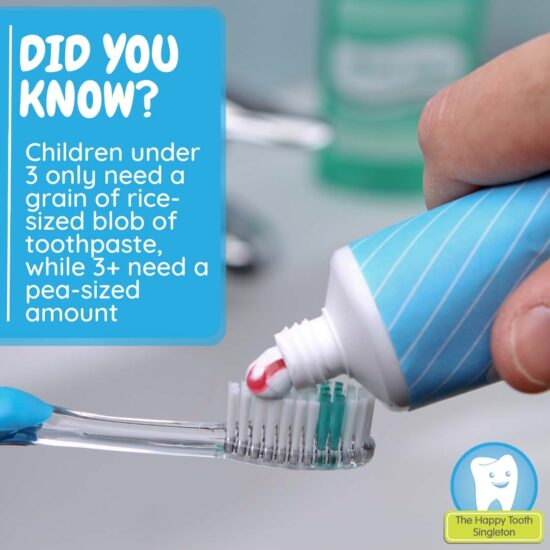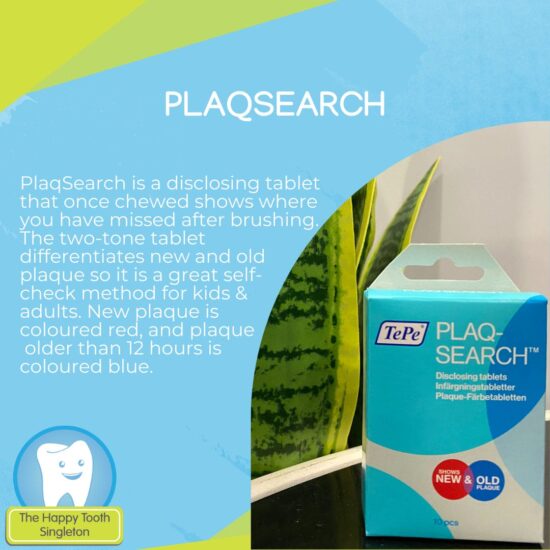Our dental team understands that having a dental extraction can be daunting for many patients. We get it. Still, tooth extraction is nothing to be feared when done by a member of our gentle and experienced team. Patients tend to think of their teeth as being tightly fixed in the surrounding bone and, thus, a rough and difficult process to remove. Your teeth are attached to the surrounding bone by a network of fibres. Careful manipulation of a tooth results in it becoming freed without much struggle.
For most tooth extractions, local anaesthesia is used to numb the area. Most patients who have had dental extraction with us report feeling little to no pain at all.
Reasons For Dental Extraction
There are a variety of reasons why our dentists may recommend dental extraction. Some of the most common reasons our dentists determine extraction as the best course of action are:
Baby Teeth
In some cases, a baby tooth may not be in its ideal position or in the right sequence. This can lead to the permanent tooth underneath it not erupting optimally. Our dentists may recommend extracting a baby tooth to avoid future orthodontic treatment.
Disease or Trauma
There are many ways to try to save a tooth that has been damaged by tooth decay, infection or trauma. However, depending on the severity of the damage, restoration methods may not be enough to restore function and aesthetics. In cases like these, it may be best to remove the tooth and replace it with a fully-functioning and natural-looking dental implant.
Part of An Orthodontic Treatment Plan
Sometimes our Orthodontists may recommend dental extractions as part of an orthodontic treatment plan. For example, if you have overcrowding of teeth, you may need one or more removed as a last resort, for them to align properly via your orthodontic treatment (the first premolars are the teeth that are removed for orthodontic reasons most frequently).
Impacted Wisdom Teeth
Wisdom teeth are the last of your teeth to erupt during your late teens or early twenties. For some patients, these teeth erupt with no difficulty. However, for others, they cause problems on their way out or don’t erupt at all due to being impacted. Our dentists recommend the extraction of problematic wisdom teeth earlier than later. This will help prevent future associated damage to your surrounding teeth, gums and other soft tissues.
Types of Dental Extractions
There are two main types of dental extractions: a simple extraction and a surgical extraction. Your dentist will determine the best type of extraction for your specific case.
Simple Extraction
If your tooth that needs removing is visible and accessible, it will most likely need a simple tooth extraction. Our dentists can perform simple extractions from the comfort of our Singleton treatment rooms. A local anaesthetic is often used during a simple extraction for your comfort. The procedure usually doesn’t take long at all.
Surgical Extraction
If your tooth is not easily accessible due to being partially erupted or completely under your gum line, you may need a surgical extraction. This is often the case with wisdom teeth. In the case of surgical extraction, your dental surgeon will need to make an incision in the gum surrounding your tooth to access it for removal. Due to the more complex nature of surgical extraction, it often gets performed under general anaesthetic in day surgery by a Specialist.
Dental Extraction Recovery Tips
Here are a few tips from our dentists to ensure a successful recovery after your extraction:
- Avoid eating or drinking hot food for six hours after your dental extraction
- Do not rinse or spit for at least 24 hours. Otherwise, the blood clot may be removed and a very painful dry socket can develop.
- Begin brushing gently around the tooth extraction site the next day.
- Do not smoke for at least 48 hours. Smoking can cause a dry socket and extreme pain. Please wait as long as possible before smoking.
- Do not drink alcohol after the extraction. Alcohol may result in increased bleeding.
- If bleeding occurs, apply pressure to the socket and be still for at least 10 minutes.
- Do not exercise heavily for 48 hours.
- Sleep slightly propped up with two pillows at night.
- If swelling occurs, place an ice pack on your face for 10 minutes on and 20 minutes off. Repeat this cycle as necessary.
It is essential after having a tooth extraction to look after yourself to ensure the area can heal properly. After a dental extraction, it generally takes six weeks to heal fully. However, for medically compromised patients and smokers, it may take longer than six weeks for the socket to heal.
Dental Extraction FAQs
Our friendly front desk team is more than happy to answer any questions you may have. For quick reference, here are the answers to some questions about tooth extraction that we get asked often:
Will I experience facial swelling?
You may experience facial swelling after tooth extraction. It is more commonly experienced after a surgical extraction or extraction involving multiple teeth. Swelling is a normal occurrence and a healthy response to surgery. Your swelling will reach its peak after 2 or 3 days and then gradually begin to reduce. You can minimise swelling and its associated discomfort by icing the area repeatedly in intervals for the first 36 hours post-extraction.
What preparation happens before a tooth extraction?
Before a tooth extraction, your dentist will take an X-ray to determine the best method for removing your tooth. The X-ray will show your dentist the exact size and location of your tooth. Your dentist will also assess your medical history to mitigate any risks and complications.
Are there risks associated with tooth extraction?
Like most procedures, there are associated risks with a tooth extraction. Most of which can be avoided if you adhere to the aftercare instructions provided by your dentist. Common complications include swelling, bleeding, pain, infection and the potential for dry socket. Overall, the risk of complications after a tooth extraction is low and the majority of patients recover well with no issues.
Will I get given specific post tooth extraction instructions?
Yes! Your dentist will provide you with all the aftercare instructions specific to your dental extraction. They will explain them to you in detail and give you the opportunity to ask any questions you may have. Following your dental extraction aftercare advice as provided by your dentist is key to a successful recovery.


